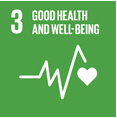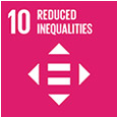KEY RESULTS IN 2022
- PrEP is provided to young key populations through youth-friendly health services.
- A roadmap for the de-stigmatization and decriminalization of sex work, countrywide communication campaigns, and community empowerment initiatives helped address high levels of stigma and discrimination against sex workers.
- Gender assessment of the national HIV control and prophylaxis programme 2022-2025 ensured the gender-transformative approach of the programme.
- All refugees from Ukraine were ensured access to HIV essential services in 2022.
SUMMARY OF THE JOINT PROGRAMME'S SUPPORT TO THE NATIONAL HIV RESPONSE IN 2022
Moldova continued to expand HIV services, including prevention of mother-to-child transmission (PMTCT) and youth-friendly HIV prevention services, pre-exposure prophylaxis (PrEP), harm reduction, and support services for people in humanitarian settings.
A comprehensive assessment of prevention of mother-to-child transmission of HIV (PMTCT) services involving 19 health facilities identified bottlenecks and will inform future programming; and a new information system for real-time reporting and recording of HIV tests and new cases within national and regional laboratories throughout Moldova will further strengthen surveillance among pregnant women and children (UNICEF).
In 2022, a total of 1030 people received HIV testing and PrEP counselling in four youth clinics through continued support from the Joint Team (UNICEF). The Chisinau Municipality Council approved an evidence-based, gender-responsive and equitable HIV, tuberculosis and viral hepatitis programme 2022-2025 to reduce the HIV burden and mortality, particularly among key populations. The Transnistrian region also adopted several policies, including HIV prophylaxis standard that strengthens the regional HIV programme sustainability while recognising the work of community- and key populations-led as well as nongovernmental organizations. A newly developed viral hepatitis treatment programme for the Transnistrian region further made hepatitis C treatment accessible for the first time in the region through technical support and guidance by the Joint Team (UNAIDS Secretariat).
HIV and other essential healthcare services were similarly scaled up among people who use or inject drugs, including through the development and approval of a new national clinical protocol for disorders related to the consumption of new psychoactive substances among adults and adolescents. With the Joint Team’s support, 252 people who use drugs accessed harm reduction, HIV, sexually transmitted infections (STIs) and hepatitis C screening, PrEP and antiretroviral treatment and psychosocial support services while 102 chemsex users accessed similar services. Besides, 414 police officers improved their understanding of HIV and tuberculosis, and as a result, around 800 people who use drugs, sex workers and homeless people were referred by the police to HIV, tuberculosis, hepatitis and STI screening and testing services in 2022 (UNODC).
To reduce the high levels of stigma and discrimination towards sex workers, a roadmap for the decriminalization of sex work was developed in collaboration with the ministries of labour and social protection, interior and justice as well as nongovernmental organizations. The Beyond Appearances social campaign, which included the production and distribution of 32 social media materials and human stories on the vulnerabilities of sex workers, reached thousands of people across the country.
Thirty-seven women living and affected by HIV in the two banks of the Nistru river completed a mentoring programme on human rights, self-esteem and gender-based violence (UNAIDS Secretariat); and 25 vulnerable women and girls living with HIV, women activists and volunteers in six regions received training on mental health and socioeconomic integration facilitated by the civil society organization Asociatia pentru Dezvoltarea Creativa a Personalitatii (UN Women, UNAIDS Secretariat).
In humanitarian settings, around 200 refugees living with HIV from Ukraine received antiretroviral treatment in the Republic of Moldova while 5000 people accessed integrated HIV, tuberculosis, hepatitis C, mental health, sexual and reproductive health as well as basic humanitarian assistance, through financial and technical support from the Joint Team (UNICEF, UNAIDS Secretariat). In addition, 39 women who use drugs and their 15 children as well as 39 adult and children refugees got accommodated in shelters with access to food, healthcare, hygiene, psychosocial, legal and child education services (UNODC).
Joint Team: UNHCR, UNICEF, UNDP, UNFPA, UNODC, UN Women, WHO, UNAIDS Secretariat, OHCHR


2022 TOTAL JOINT PROGRAMME SPENDING (US$) :
994 803
Note: country-level graphs show 2022 expenditure data available at the time of the update (14 August 2023).
REPUBLIC OF MOLDOVA COUNTRY REPORTS
